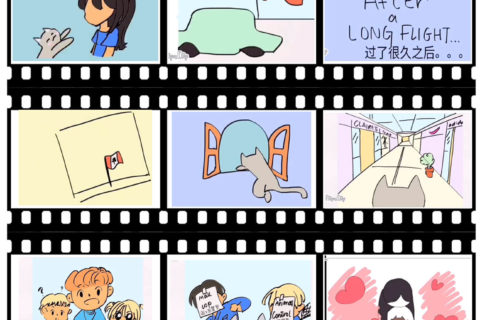
Zhang, Z. (principal applicant) & Heydon R. (2021-2023). Composing stories across the borders: Promoting equity through digital storytelling with biliteracy curricula, SSHRC IG.
Education systems worldwide have recently been disrupted by the COVID-19 pandemic. The resulting school closures affected 1.18 billion PreK-20 learners around the world (UNESCO, 2020) with a shift towards remote learning. These changes have amplified calls for scholarly work that can redress educational inequities exacerbated by online learning and promote collective problem-solving between people across cultural and linguistic borders (e.g., Pinar, 2020). SSHRC also highlighted the need to address technological innovations, global connectedness, and Canadians’ digital literacy development in the 21st century (SSHRC, 2020). The two-year Composing Stories project is designed to address these urgent needs to envision new ways of enacting equity in and through online education while we respond to public health crises and digital divide. Existing literature calls for ethical literacy pedagogies that recognize diverse learners’ linguistic and cultural repertoires (e.g., Cummins et al., 2015) and foster their creative solutions to the 21st century challenges (e.g., Kuby & Rowsell, 2017).
Building on our pilot study (SSHRC PEG 2018-2019) (e.g., Zhang & Li, in press), this online, cross-border biliteracy program will explore ethical meaning making (i.e., meaning making that addresses the interconnectedness of humans, materials, languages, and cultures) and identity construction through digital media. Composing Stories will connect learners from Canada with global peers (aged 13-17) through online platforms, who are acquiring English and Chinese (Mandarin or Cantonese) in school and community. It will explore how researchers, creative arts experts, English and Chinese language teachers, students, their families, and communities can collaboratively develop and enact an online, cross-border biliteracy curriculum that could enhance school-community ties, ensure equitable learning opportunities, and support education post-pandemic.



